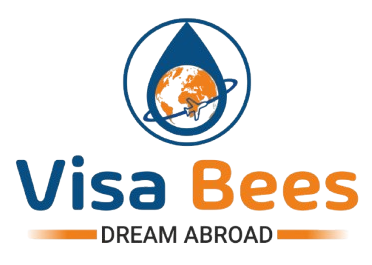🕒Mon – Fri: 9:00 am – 05.00pm

Immigration FAQs
Immigration FAQs
Immigrating to another country can be a complex and time-consuming process, especially without the right guidance. At Visa Bees, we simplify the journey for you!
To help you get started, we’ve answered some of the most frequently asked questions by Indians about migrating abroad. If your specific query isn’t addressed here, don’t hesitate to reach out to our immigration experts. Let Visa Bees provide the expert assistance you need to make your migration journey smooth and hassle-free.
FAQs for Skilled Professionals Seeking Immigration
What are the key eligibility criteria for skilled migration programs?
While requirements vary by country, common criteria include:
- Relevant Work Experience: Usually 2–5 years in a profession listed as in-demand.
- Education: A recognized degree or diploma in your field.
- Age: Many programs favor applicants aged 18–45.
- Language Proficiency: Passing an English test (IELTS/TOEFL) or other language tests like French (TEF/TCF) for Canada.
- Skills Assessment: Some countries require an official assessment of your qualifications.
What is a Skilled Occupation List (SOL), and why is it important?
A Skilled Occupation List (SOL) is a list of professions that are in demand in a particular country. Skilled migration programs use the SOL to determine eligibility.
- Canada: Refers to its National Occupational Classification (NOC).
- Australia: Maintains several SOLs for different visa types, such as the Medium and Long-Term Strategic Skills List (MLTSSL).
- New Zealand: Uses the Long-Term Skill Shortage List (LTSSL).
If your occupation is on the list, you are more likely to qualify for immigration.
Do I need a job offer to apply for a skilled worker visa?
Not always. Some countries allow you to apply without a job offer:
- Canada: The Express Entry system does not require a job offer, though it can increase your CRS score.
- Australia: Certain GSM visas, like the Subclass 189 Visa, don’t require a job offer.
- Germany: The Opportunity Card enables you to move and search for a job.
What are the language requirements for skilled migration?
Language proficiency is essential and often demonstrated through standardized tests:
- Canada: Requires IELTS (English) or TEF/TCF (French).
- Australia/New Zealand: Accepts IELTS, TOEFL, or PTE Academic scores.
- Germany: Basic German proficiency may be required for certain professions, though many jobs in tech and engineering accept English-speaking candidates.
How do points-based systems work for skilled professionals?
Many countries use a points-based system to evaluate skilled migration applicants. Points are awarded for:
- Age: Younger applicants receive more points.
- Education: Higher degrees result in more points.
- Work Experience: Experience in a listed occupation increases your score.
- Language Proficiency: Higher test scores lead to more points.
- Adaptability: Factors like having a job offer or family in the country can boost your score.
For example:
- Canada: The CRS score determines your ranking in the Express Entry pool.
- Australia: A minimum of 65 points is required under the GSM program.
What industries are in high demand for skilled professionals?
Demand varies by country, but key industries often include:
- Technology and IT: Software developers, data analysts, and cybersecurity experts.
- Healthcare: Nurses, doctors, and allied health professionals.
- Engineering: Civil, mechanical, electrical, and software engineers.
- Education: Teachers, especially in STEM and special education.
- Trades: Electricians, plumbers, and welders.
What documents are required for skilled migration applications?
While specifics depend on the country, commonly required documents include:
- Passport
- Proof of Education: Degree certificates and transcripts.
- Proof of Work Experience: Letters from employers or contracts.
- Language Test Results
- Skills Assessment Report (if applicable).
- Police Clearance Certificate
- Medical Examination Report
How long does the process take for skilled worker visas?
Processing times vary depending on the country and visa type:
- Canada: Express Entry applications are typically processed within 6 months.
- Australia: GSM visas usually take 8–12 months.
- New Zealand: Skilled Migrant applications can take 6–12 months.
- Germany: Opportunity Card processing takes about 4–6 weeks.
Are family members included in skilled worker visa applications?
Yes, most skilled migration programs allow you to include family members, such as:
- Spouse/Partner: Often eligible for work or dependent visas.
- Children: Typically covered under your visa for education or residency.
